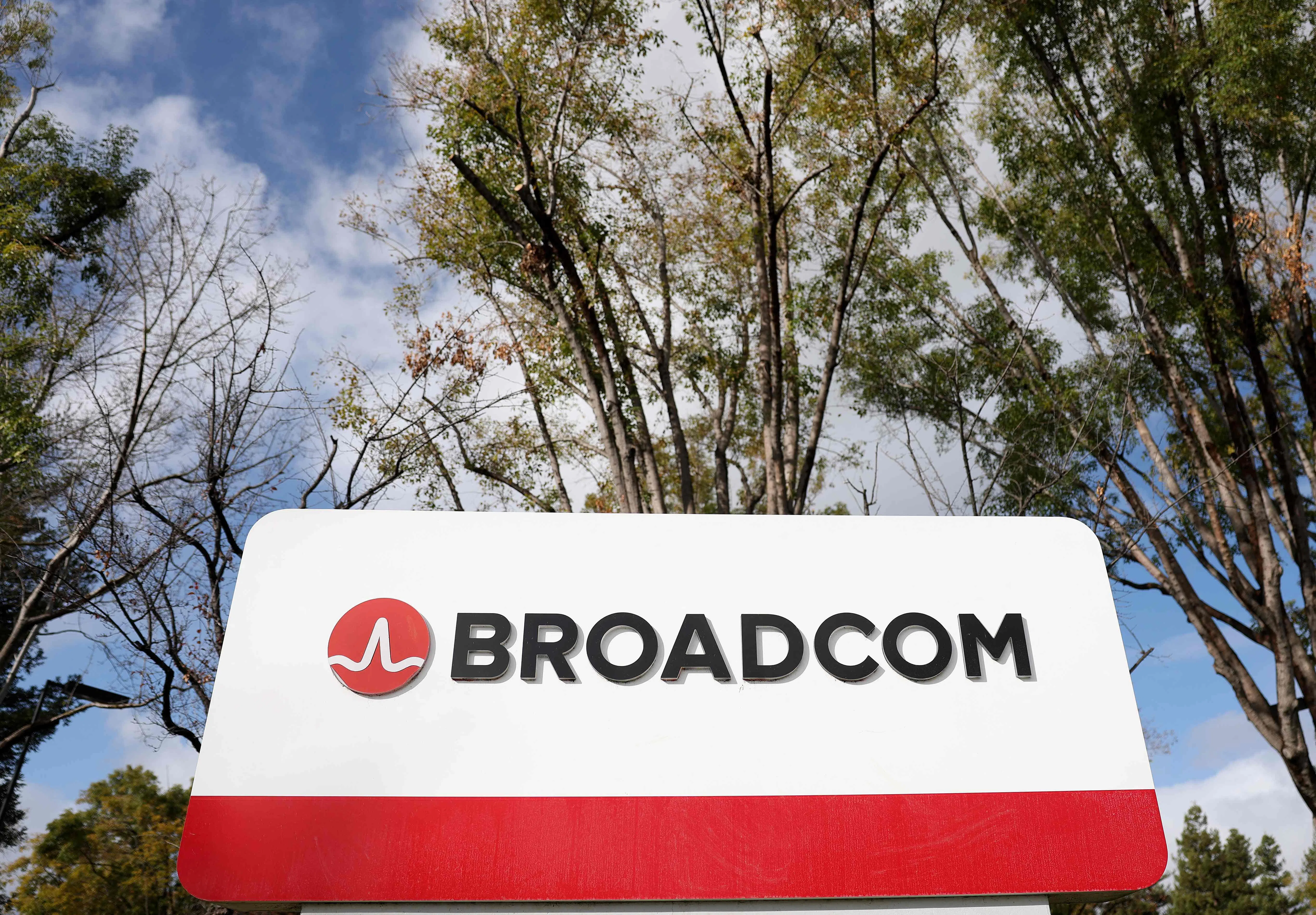BROADCOM, a chip supplier for Apple and other big tech companies, jumped in late trading after an upbeat forecast assured investors that spending on artificial intelligence computing remains healthy.
Sales will be about US$14.9 billion in the three-month period ending May 4, Broadcom said in a statement on Thursday. Analysts had estimated US$14.6 billion on average, though some projections surpassed US$15.1 billion.
The report suggests that a historic boom in AI spending is still going strong. Broadcom has been a major beneficiary of those expenditures, with its data centre customers pouring money into new infrastructure.
The run-up helped push up the company’s market value above US$1 trillion at one point. But investors have grown more cautious in 2025, and they’ve been looking for evidence that the AI surge has legs.
Broadcom’s stock rose more than 10 per cent in extended trading. The shares had earlier closed at US$179.45 in regular New York trading, leaving them down 23 per cent in 2025.
Chief executive officer Hock Tan said cited AI spending as a key driver during the first quarter, which ended Feb 2. Sales from that area will total US$4.4 billion in the current period, he said in the statement.
BT in your inbox
Start and end each day with the latest news stories and analyses delivered straight to your inbox.
The results follow a poorly received earnings report on Wednesday from Broadcom competitor Marvell Technology. That company’s revenue increased 27 per cent in the most recent quarter, and it projected an acceleration in the current period. But the growth wasn’t enough for investors, who sent the shares down 20 per cent on Thursday.
Profit was US$1.60 a share in the fiscal first quarter, excluding some items, with revenue rising 25 per cent to US$14.92 billion. Analysts had estimated US$1.50 a share in earnings and sales of US$14.6 billion, according to data compiled by Bloomberg.
Though Broadcom makes a variety of chips – including connectivity components for the iPhone and networking technology – investors have focused lately on its custom design business.
That division helps data center clients create chips that can create and run artificial intelligence software and services. The company is also now a major provider of software used by corporations to run their businesses and networks.
Tan has built one of the most valuable companies in the chip industry through a string of acquisitions. He also has assembled a software unit that’s now approaching the scale of Broadcom’s semiconductor operations. That reach makes the company’s forecasts a bellwether for demand over a broad swath of the technology industry.
Broadcom’s semiconductor division had revenue of US$8.21 billion in the quarter, up 11 per cent. Software sales were US$6.7 billion. Both numbers topped projections.
The company is much larger than it was a couple of years ago, partly because of its acquisition of VMware, which it bought for roughly US$69 billion in 2023.
Broadcom, based in Palo Alto, California, sells components for cars, smartphones and internet access gear. Its push into software, meanwhile, includes products for mainframe computers, cybersecurity and data center optimisation.
Apple is a top customer. During earnings calls, Tan typically gives updates on Broadcom’s often-contentious relationship with that company, which he refers to as his “large North American customer” or another vague term.
Bloomberg News reported earlier that Apple would start switching away from a key Broadcom wireless chip starting next year. The iPhone maker has been replacing suppliers’ components with in-house versions, a trend that’s also set to hit chipmaker Qualcomm Inc. BLOOMBERG







